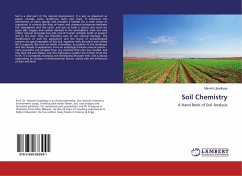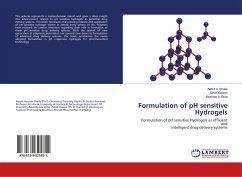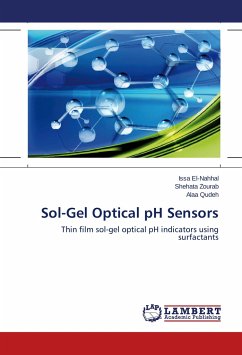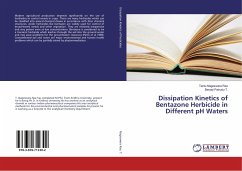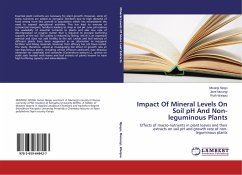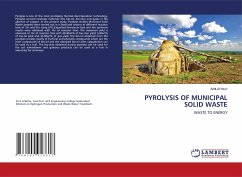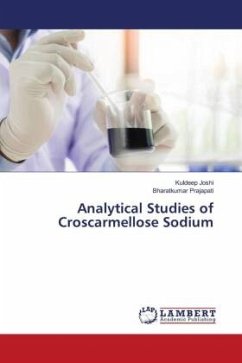
Analytical Studies of Croscarmellose Sodium
Versandkostenfrei!
Versandfertig in 6-10 Tagen
29,99 €
inkl. MwSt.

PAYBACK Punkte
15 °P sammeln!
Croscarmellose sodium (CCS) is carboxymethylated and cross-linked polymer of cellulose. In the synthesis, pure cellulose extracted from wood or cotton fiber is steeped in sodium hydroxide solution to form alkali cellulose. Carboxymethyl cellulose is obtained by reacting the alkali cellulose with sodium monochloroacetate. At the end of the substitution reaction, the sodium hydroxide is used up and the remaining sodium monochloroacetate gradually hydrolyzes to form glycolic acid. The glycolic acid catalyzes cross-linking to produce CCS. CCS is finally obtained by extracting with aqueous alcohol ...
Croscarmellose sodium (CCS) is carboxymethylated and cross-linked polymer of cellulose. In the synthesis, pure cellulose extracted from wood or cotton fiber is steeped in sodium hydroxide solution to form alkali cellulose. Carboxymethyl cellulose is obtained by reacting the alkali cellulose with sodium monochloroacetate. At the end of the substitution reaction, the sodium hydroxide is used up and the remaining sodium monochloroacetate gradually hydrolyzes to form glycolic acid. The glycolic acid catalyzes cross-linking to produce CCS. CCS is finally obtained by extracting with aqueous alcohol and any trace sodium glycolate and sodium chloride are removed. The objective of the study was to analyze parameters such as weight, density, pH, conductivity, particle size, moisture content, organic impurities, solubility, bulk density etc. Above all tests are complies with the regulatory specification limitation.



